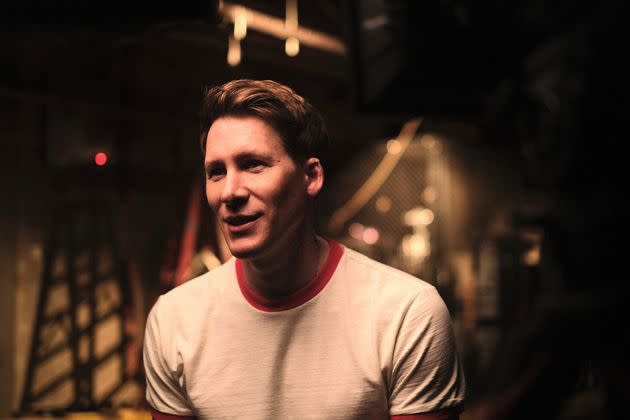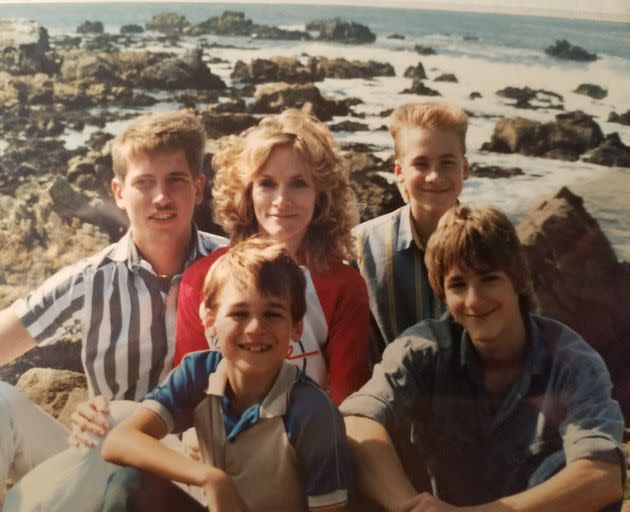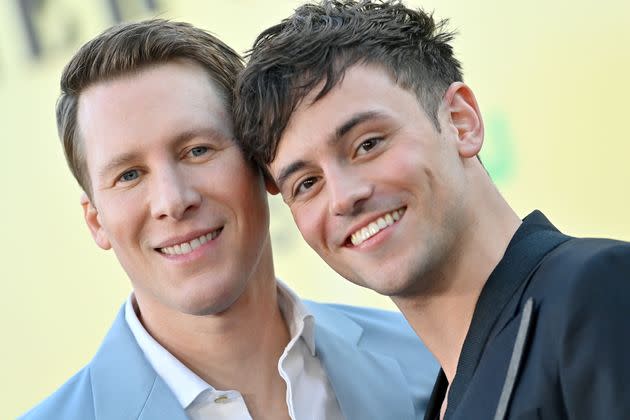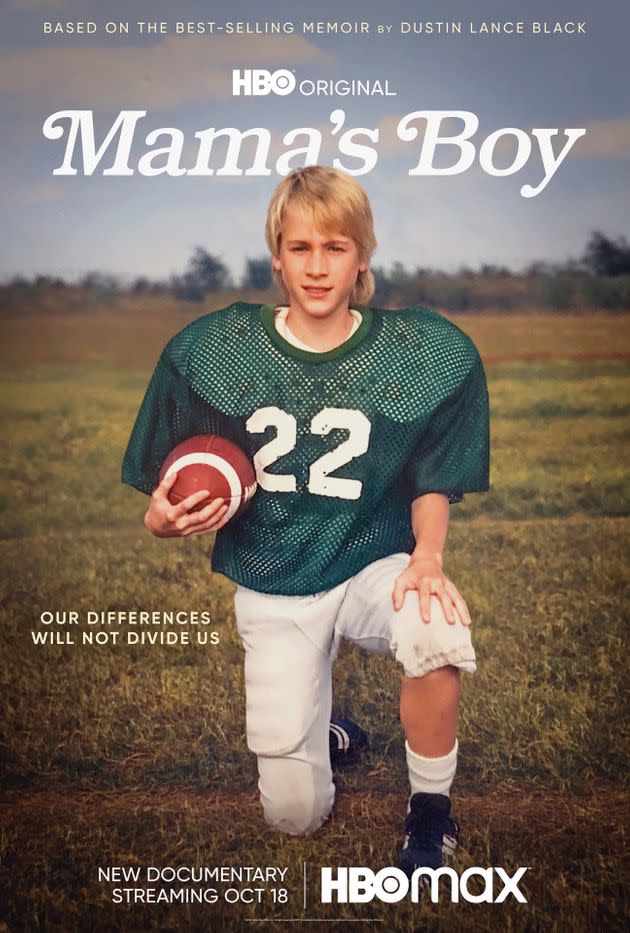Dustin Lance Black Shares The ‘Emotionally Brutal’ Process Behind Creating ‘Mama's Boy’
- Oops!Something went wrong.Please try again later.

Dustin Lance Black in HBO's “Mama's Boy.” (Photo: TRAVERS JACOBS/HBO)
Viewers may be surprised to find only fleeting references to Dustin Lance Black’s game-changing Hollywood career in “Mama’s Boy,” his new documentary.
Instead, the film ― which premiered last week at NewFest, New York’s annual LGBTQ film festival, ahead of its HBO debut this Tuesday ― zooms in on the Oscar-winning “Milk” screenwriter’s relationship with his mother, Roseanna “Anne” Bisch. Born into a Southern family that lived below the poverty line and paralyzed from childhood polio, Bisch overcame fractured marriages and other personal setbacks to become a medical technologist for the Department of Defense.
Though Bisch died in 2014, she lives on through Black, who credits her tenacity with helping to drive his own commitment to LGBTQ advocacy work.
“When I teach film students about how to tackle a biopic, I always ask them: ‘What’s necessary about the story?’ And when I asked myself that question, it kept coming back to these lessons I learned from my mother,” he told HuffPost in an interview. “She was conservative, but created connections with people who weren’t, which defies the way so many of us live today, which is, sadly, in our own silos. ‘Mama’s Boy’ is how she created someone like me.”
HuffPost caught a sneak peek at “Mama’s Boy” via the following clip. In it, Black discusses feeling his mother’s defiant spirit when he was asked to serve as a grand marshal for the 2012 Utah Pride Festival.
Watch a scene from “Mama’s Boy” below.
Directed by Laurent Bouzerau, “Mama’s Boy” is adapted from Black’s 2019 memoir of the same name. The film also explores how Black, who was raised in the Church of Jesus Christ of Latter-day Saints, struggled to reconcile his childhood faith with his identity as a gay man before moving to Los Angeles to study filmmaking. Once Black began living as his true self, he became estranged from members of his extended family.
These days, Black is no stranger to depicting America’s political divide and anti-LGBTQ sentiments in his screenplays. His next film is Netflix’s “Rustin,” which examines the life of Bayard Rustin, a confidant of Martin Luther King Jr. and a key organizer of the famed 1963 March on Washington.
But “Mama’s Boy” presented Black with the challenge of being vulnerable, requiring him to open himself up to personal rejection from family members once more. With Bouzerau’s encouragement, he traveled to Texas, where he spent a number of years as a child, and Bisch’s home state of Louisiana to reconnect with those loved ones who remain deeply conservative.
While such scenes were difficult to film, the process “seemed worth it to answer my mother’s call to keep those bridges standing,” Black explained. Among the most touching moments are segments in which he discusses his older brother, Marcus, who was also gay but “loved being a son of the South” during his lifetime. He died of cancer in 2012.

“She was conservative, but created connections with people who weren’t, which defies the way so many of us live today, which is, sadly, in our own silos,” Black said of his mother, Anne Bisch (center). (Photo: Courtesy of HBO)
“It’s not easy to go back through your life, particularly in a film where you’re stepping down those same physical paths that you grow up in, and seeing the people and being with the people who might not agree with you and your family,” Black said. “It was challenging, it was taxing, it was emotionally brutal. [But] if we share space with people we disagree with and we don’t make it a fight to see who’s right, you can actually build these very unexpected bridges that heal family, heal community, maybe heal country. I’m so glad I did it.”
Bouzerau, whose credits include 2020’s “Natalie Wood: What Remains Behind,” believes “Mama’s Boy,” in some respects, reflects his own journey as a gay man.
“Even though I’m a completely different person, there is a mirror here and I’m seeing myself,” he said. “It was really speaking to something that I hope a lot of families can relate to.”

Black (left) and husband Tom Daley. (Photo: Axelle/Bauer-Griffin via Getty Images)
These days, Black is a devoted husband and father. He married Olympic diver Tom Daley (who appears in “Mama’s Boy”) in 2017. The two men welcomed a son, Robert Ray Black-Daley, a year later.
As to how the memory of his mother has impacted his outlook on parenthood, Black said he hopes to raise his son with “a wider sense of family” that doesn’t discriminate on the basis of political affiliation.
“My son is going to know his cousins and aunts and uncles who probably vote differently than I do,” he explained. “Having been raised by a woman who was judged every time she walked into a room because she looked so different and moved so differently taught me that other people’s opinions of you are none of your business. Get on with the business of being you. So I’m going to pass that on to him. I hope he hears it.”
“Mama’s Boy” is out Tuesday on HBO.

(Photo: HBO)
This article originally appeared on HuffPost and has been updated.
